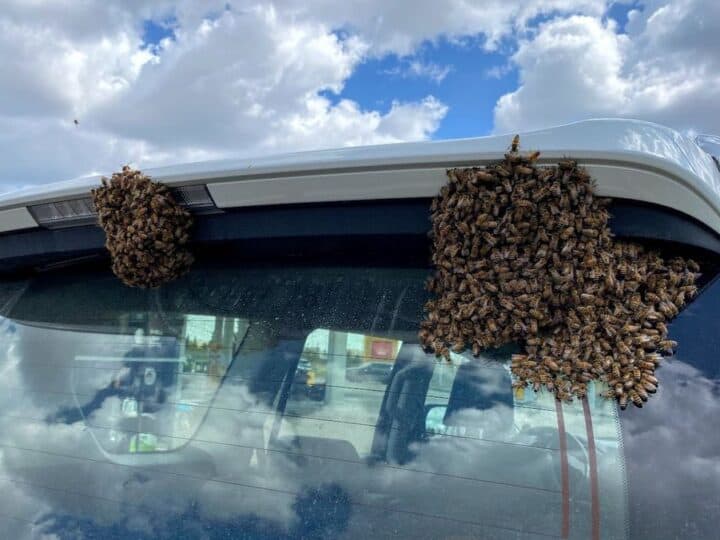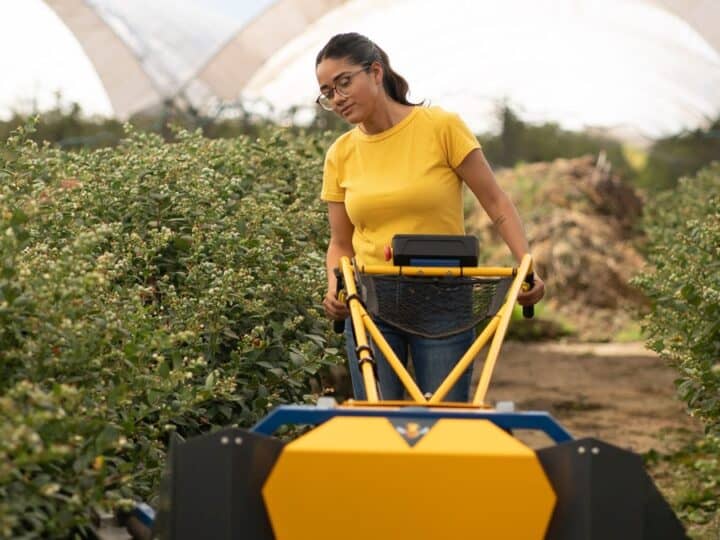When I dip an apple slice in honey on the first night of Rosh Hashana this Friday, I’ll remember suiting up for a bee encounter at the largest private beekeeping operation in Israel on Sunday.
Members of the press were invited to Boaz Kanot Apiary in southern Israel to see how ag-tech company BeeHero monitors the wellbeing of hardworking honeybees in 200,000 hives on five continents.
Honey is, of course, a valuable commodity produced from nectar by honeybees.
However, bees’ main role is pollination. Bees, especially easily transportable honeybees, unintentionally pollinate about 75 percent of the crops we eat as they fly around collecting pollen from flowers to feed their eggs and larvae.
But honeybee colonies are declining due to disease, pesticides, adverse weather and other life-threatening conditions. There aren’t enough bees to sustain pollination for a rapidly increasing world population.
“Our mission is to future-proof the global food supply by saving bees,” says Eytan Schwartz, VP Global Strategy for BeeHero.
Translating bee language
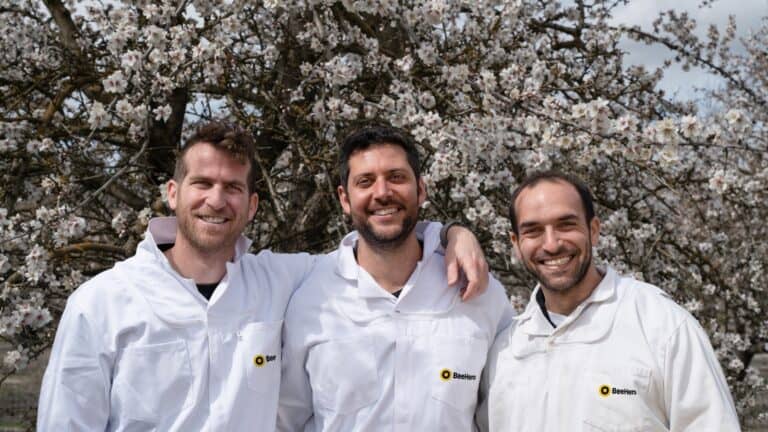
In 2017, Boaz Kanot’s son, Itai, founded BeeHero with Omer Davidi and Yuval Regev.
BeeHero’s IoT sensors inside beehives collect essential data on temperature, humidity, acoustics and other parameters.
The hive data is then correlated with outside data, such as weather conditions, and analyzed in the cloud by advanced algorithms and AI.
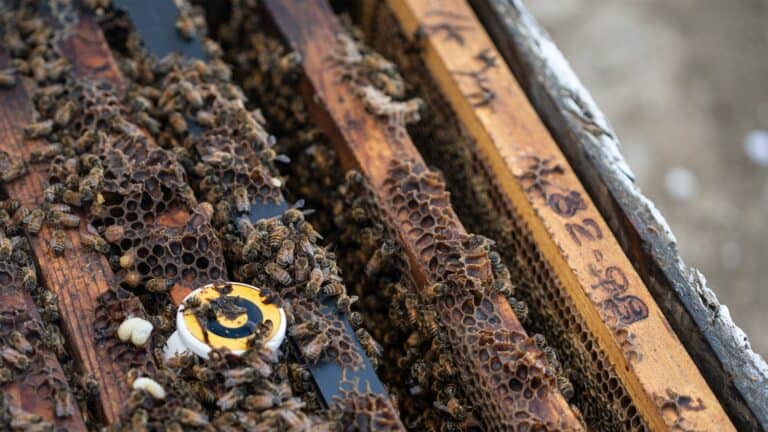
Beekeepers get real-time insights about colony health and productivity. Farmers get real-time insights to help them plan pollination strategies.
“BeeHero is the first company to continuously log data from hives 24/7, providing more transparency into the hives than ever before possible, and producing more insights for beekeepers and growers around the world,” said CEO Davidi.
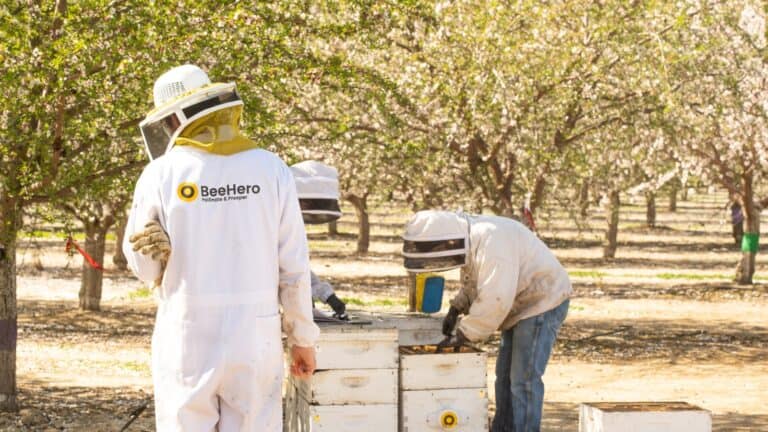
Regev, the company’s CTO, said the bees’ constant communication gives each hive a unique acoustical signature.
When bees communicate stress — for example, the queen is gone or the hive is overcrowded or lacking water or food — BeeHero “translates” the conversation for the beekeeper, who can then take action to avoid colony collapse.
“By connecting the hive to the Internet, beekeepers don’t need to go into each hive to check what is going on. They can just go into the app where we provide information for beekeepers to do their job better,” said Regev.
“Last year, the mortality rate of hives was 48% for regular beekeepers [in the United States]. For those using BeeHero, the number dropped to 27%.”
Staying comfortable
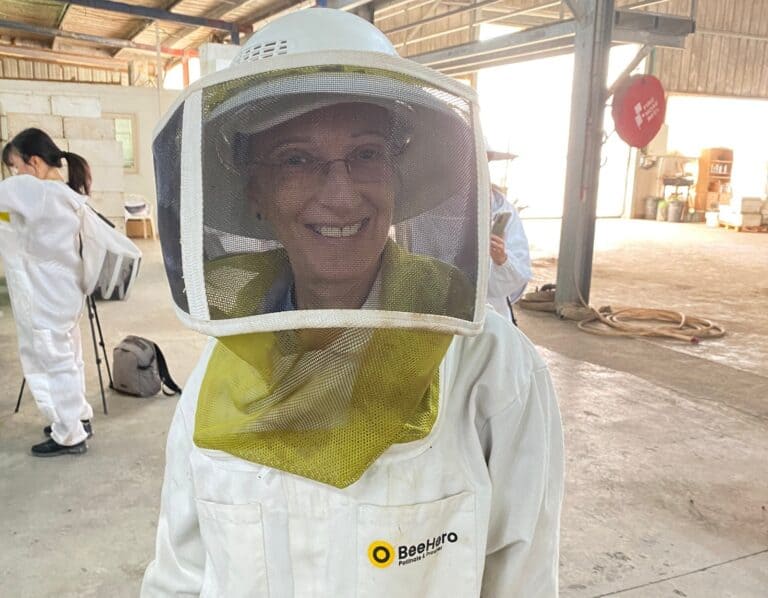
BeeHero Chief Biologist Doreet Avni, and we reporters, put on protective suits before examining the system at work in one of many bee boxes at Kanot Apiary.
In 90-degree Fahrenheit heat, the overalls, head coverings and disposable gloves were mighty uncomfortable, helping to illustrate the advantages of the BeeHero system.
“Ordinarily, beekeepers have to suit up, go outside in any kind of weather and inspect hives frame by frame. In an operation with thousands of colonies it’s almost impossible to do this,” said Avni, who has been researching honeybees for over 30 years.
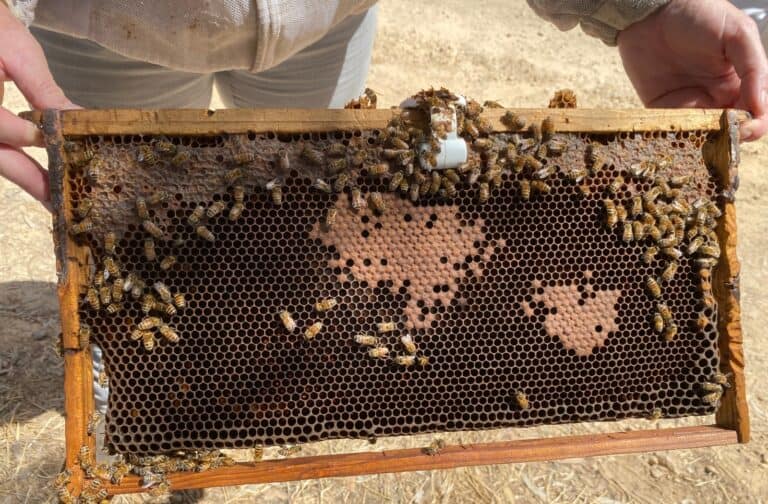
Furthermore, the bees don’t like their hives opened. It disturbs them and lets in ambient heat or cold. They have to work for hours to restore homeostasis inside the hive.
“For almond groves in California, the rule of thumb is not to open hives if the outside temperature is below 16 degrees Celsius [60.8F]. With our sensors, beekeepers open only those hives there are concerns about,” said Avni.
On that hot day, the bees were venturing out of the hive only to bring back water.
Avni said BeeHero isn’t the first company to attempt replacing manual inspections with sensors but the others used sensors that were too large, too disruptive or too expensive.
This is why BeeHero has become the world’s largest pollination services company. The New York Times gave BeeHero a 2022 Good Tech Award, and this year CNBC named the company to its Disruptor 50 list.
Buzz-iness model
BeeHero has raised a total of $64 million, employs 65, and is now facilitating 10 million hive samples daily.
The company’s clients are mainly in the United States and Australia. A clientele is building up in Europe and Africa. In Israel, BeeHero is used in apiaries such as Kanot. Sales and operations are in California; R&D in Tel Aviv.
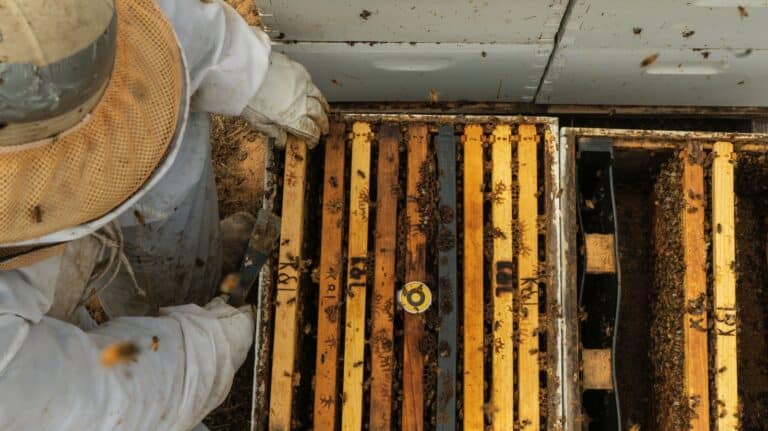
Schwartz explains that beekeepers get the sensor technology for free.
“Our money comes from growers, for whom we broker the hives. If you need 10,000 hives and you’ve been ordering them from an apiary on the other side of the United States or Australia, by the time you receive them you might be receiving empty or half-empty boxes that cannot provide the pollination you need,” he said.
“You also don’t know where to place the hives, taking into account field conditions and crop density and variety. When you order from us, we give you the exact number of bees you need, and we tell you precisely where to place the hives, maximizing the bees’ ability to pollinate the crops.”
BeeHero’s “Precision Pollination as a Service” technology also lets growers check if the bees are actually pollinating the flowers.
Schwartz adds that “by creating better hives with more bees, you reduce the number of hives that have to transported from place to place. You get better pollination with fewer boxes. We reduce carbon emissions in this way.”
Sweet ending
Our tour of Kanot Apiary ended in the honey extraction shed, where workers uncap each frame and place it in a spinner so the honey flows into a collection pan and is piped to a different room to be jarred.
While pollen provides protein for the bees, nectar provides energy. They preserve nectar by turning it into honey – similar to humans canning vegetables for future use.
Avni told ISRAEL21c that in a commercial apiary, bees don’t need as much honey as they produce from the nectar they collect. Some apiaries leave half the honey in the frames and others extract it all. Either way, the bees are compensated by the addition of sugar syrup to make sure they have energy to continue the colony.
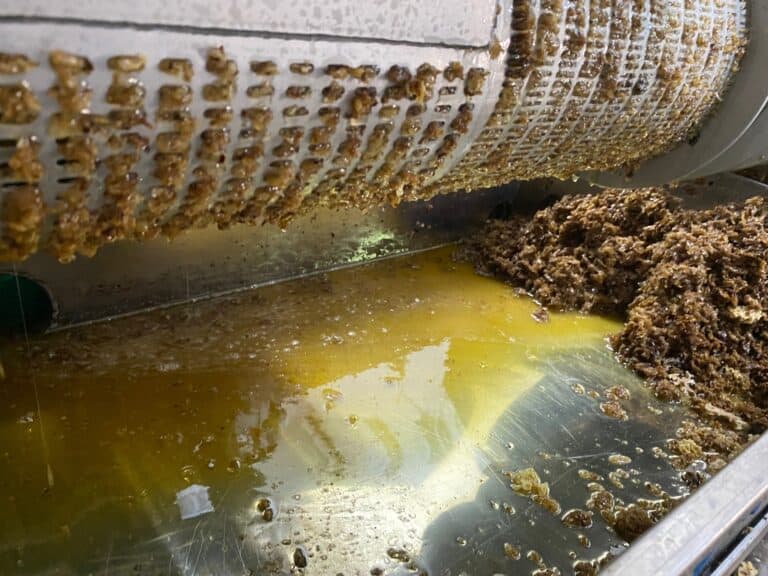
For more information on BeeHero, click here.

For more on how Israeli startups are working to save bees or pollinate without them, click here.














